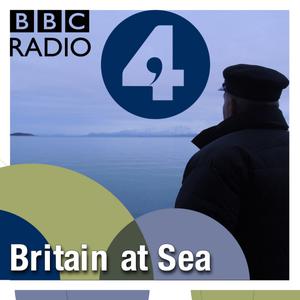
Britain at Sea
BBC
Admiral Lord West tells the story of the Royal Navy during the 20th century.
- 14 minutes 6 seconds15. 21st Century
Lord West concludes his history of the Royal Navy in the 20th century.
Since the end of the Cold War, major changes in Britain have taken place in military, technological and social terms.
How have these changes affected the Navy? Visiting HMS Queen Elizabeth, the Royal Navy's future aircraft carrier, Lord West explores recent changes onboard - women being integrated into the service and gay people being welcomed.
He describes rapidly changing technology, which has dramatically shrunk the number of people required to operate even very large ships. And he looks at the many actions and conflicts which the Navy has taken part in since 1991, from the extraordinary and untold story of the departure from Hong Kong in 1997, to the war in Afghanistan.
Producer: Giles Edwards
First broadcast on BBC Radio 4 in June 2014.
20 June 2014, 12:59 pm - 14 minutes 18 seconds14. Falklands
Lord West tells the story of the Royal Navy in the Falklands War.
Lord West travels to the Royal Naval Air Station Yeovilton, home of the Fleet Air Arm, to explain the vital importance of air power in winning the Falklands War.
He visits the memorial to friends of his who died in the conflict, including when his own ship, HMS Ardent, was sunk.
For a different perspective, above the waves, he speaks to the Duke of York, who flew Sea King helicopters during the conflict.
Lord West also explains the wider significance of the war. Not only did victory reverse planned cuts to the Royal Navy, it also had a much wider effect on the strategic position at the end of the Cold War. Producer: Giles Edwards
First broadcast on BBC Radio 4 in June 2014.
19 June 2014, 12:59 pm - 14 minutes 11 seconds13. North Atlantic
Lord West tells the story of how Britain and the Royal Navy came to focus heavily on the North Atlantic in the late Cold War.
During his time in the Royal Navy, the focus was very largely on the North Atlantic.
Lord West returns to North Norway to see the Royal Marines training and explain how that region came to be a central focus during the late Cold War. He hears about the secret world of submarines.
And he joins a patrol onboard a Fisheries Protection Vessel to tell the story of a war with a supposed ally - what one enterprising journalist at the Daily Express christened the 'Cod War'.
Producer: Giles Edwards
First broadcast on BBC Radio 4 in June 2014.
18 June 2014, 12:59 pm - 14 minutes 15 seconds12. Sky, Surf and Undersea
Lord West tells the story of how the Royal Navy lost its aircraft carriers but gained the United Kingdom's nuclear deterrent.
The 1960s were a time of intense inter-service rivalry.
The RAF and the Royal Navy exchanged blows in the corridors of Whitehall - and by the end of the decade the Royal Navy had lost its replacement aircraft carriers but been given responsibility for the future of the United Kingdom's nuclear deterrent.
Onboard one of the Navy's Trident submarines, Lord West hears how the coming of nuclear propulsion and nuclear power changed the shape of the Navy.
And on his first visit to Faslane Peace Camp, he hears of the major impact the coming of nuclear technology had on Scottish public life.
Producer: Giles Edwards
First broadcast on BBC Radio 4 in June 2014.
17 June 2014, 12:59 pm - 14 minutes 12 seconds11. Decolonisation
Lord West tells the story of the Royal Navy's role in Britain's withdrawal from empire.
Travelling to Malta, he explains the Navy's central role in Maltese independence.
Strolling through Valletta he describes life in the Royal Navy in the 1950s and 1960s, an era when hundreds of Royal Navy ships travelled the globe, journeying between dozens of overseas bases and acting very much like the world's policemen.
He also recalls visiting the Gulf in the 1960s, and seeing creeks and towns barely large enough to hold a small warship but which are now enormous cities full of skyscrapers.
And Lord West recalls important episodes when the Royal Navy was called to intervene overseas - disastrously in Suez in 1956, but much more successfully in Kuwait in 1961 and Tanganyika in 1964.
Producer: Giles Edwards
First broadcast on BBC Radio 4 in June 2014.
16 June 2014, 12:59 pm - 14 minutes 6 seconds10. Early Cold War
Lord West describes how the Royal Navy fought a series of conflicts in East Asia during the early Cold War.
From the Amethyst Incident in China in 1949 to the confrontation with Indonesia in the mid-1960s, East Asia was a key focus during the early Cold War. And the Royal Navy was at the heart of the action.
In this episode Lord West speaks to veterans of the Amethyst Incident and the Korean War, and hears how in this period the Royal Marines embraced their commando role and fought successfully in Korea, Malaya and against Indonesia.
Producer: Giles Edwards
First broadcast on BBC Radio 4 in June 2014.
13 June 2014, 12:59 pm - 14 minutes 10 seconds9. Whitehall Warriors
Lord West explains how Britain, and the Royal Navy, adjusted to dramatically straitened circumstances after the Second World War. He describes the dramatic social changes that began after 1945, including big pay rises, improved food and conditions of service - and even the beginning of the end for hammocks. He explores the Royal Navy's crucial role in the development of nuclear weapons, and the impact they had on defence thinking and the future of conventional forces. And he speaks to Laura Sandys MP, the daughter of former Defence Secretary Duncan Sandys, about his seminal 1957 Defence White Paper, which shaped British defence thinking for a generation. Producer: Giles Edwards
First broadcast on BBC Radio 4 in June 2014.
12 June 2014, 12:59 pm - 14 minutes 15 seconds8. Pacific Horrors
Lord West tells the story of the Royal Navy in the Pacific during the Second World War.
Initially beaten, the Royal Navy fought back, and by the end of the war had deployed the most powerful battlefleet in its history.
But by then the tide had turned in military power and international politics, and this was the theatre in which it became clear that the United States would soon replace the United Kingdom as global naval superpower.
The lessons learned in the Pacific ensured the bonds between the two navies, and the two nations, would remain strong through the challenges which followed.
Producer: Giles Edwards
First broadcast on BBC Radio 4 in June 2014.
11 June 2014, 7:03 am - 14 minutes 12 seconds7. Mediterranean Challenges
Lord West travels to Malta to tell the story of the Royal Navy's incredibly difficult war in the Mediterranean between 1940 and 1945.
The Mediterranean war was the last time an Admiral commanded an entire theatre of war from the bridge of a ship. It produced some dramatic fleet successes and saw an assault on German supply convoys which helped win the war in North Africa against Rommel.
In the end, the Royal Navy prevailed, but with some of the most desperate fighting of the war, the victory came at a price.
Producer: Giles Edwards
First broadcast on BBC Radio 4 in June 2014.
10 June 2014, 12:59 pm - 14 minutes 11 seconds6. Battles for Britain
Lord West tells the story of the Royal Navy during the Second World War, from early fights in Norway to the Battle of the Atlantic.
And he shows how the Royal Navy saved Britain from invasion during the Second World War.
In a chilly fjord in northern Norway he explains how a battle in April 1940 helped saved Britain from invasion later that summer, while in northern France he looks out from the top of a Nazi-era submarine pen and imagines how the prospects envisaged by the German U-boat aces must have changed during the course of the war.
Producer: Giles Edwards
First broadcast on BBC Radio 4 in June 2014.
9 June 2014, 12:59 pm - 14 minutes 6 seconds5. Inter-War Trouble
Lord West explores the Royal Navy's three battles between the wars.
The three opponents were a new department in Whitehall, communists in Russia, and the Navy's oldest foe - the Treasury.
The First World War left Britain reeling, economically devastated and with massive social dislocation and a generation scarred, both physically and psychologically, by the conflict. The country was on the back foot, and the Royal Navy was, too.
The Navy's formidable new capability - its air arm - was taken away and handed to the newly-formed RAF. Constant raids by the Treasury were initially rebuffed, but eventually took their toll. And a perception grew up that the pre-war arms race had caused the war, and that the Navy had caused the arms race, and there was little outrage when the size of the navy was fixed.
But alongside these battles in Whitehall, in international negotiations, and for the hearts and minds of the British public, the Navy also had a proper war to fight.
For almost a year after the end of the First World War, the Navy - together with other British and allied troops - fought a war in Russia against the 'Red Army' of the nascent Soviet Union.
Largely forgotten today because the exhausted troops were eventually withdrawn, the war nevertheless gave Estonia its first taste of independence.
Producer: Giles Edwards
First broadcast on BBC Radio 4 in June 2014.
6 June 2014, 12:59 pm - More Episodes? Get the App
Your feedback is valuable to us. Should you encounter any bugs, glitches, lack of functionality or other problems, please email us on [email protected] or join Moon.FM Telegram Group where you can talk directly to the dev team who are happy to answer any queries.
 Dan Snow's History Hit
Dan Snow's History Hit
 The Daily
The Daily
 Great Lives
Great Lives
 Casefile True Crime
Casefile True Crime